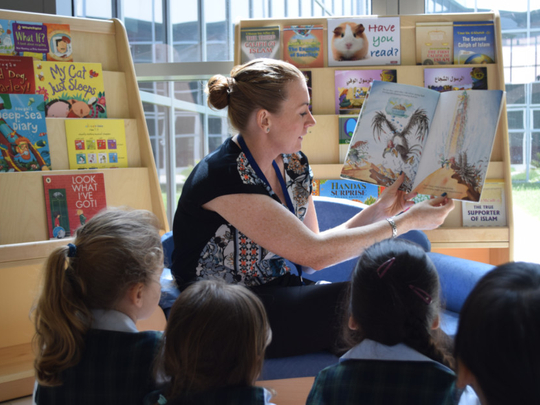
The old adage that you get what you pay for applies to many things, but is it relevant to school fees too?
While every parent wants the best school for their children, there is no getting away from the fact that not all education providers are affordable. School fees in the UAE range from Dh14,000 for one Indian school in Dubai for children in Year One, to between Dh50,000 and Dh70,000 for the same grade at some British curriculum schools in prime areas.
While many aspects govern what a school can charge, one of the determining factors is the school rating by the Knowledge and Human Development Authority (KHDA).
“The KHDA has a very clear formula for school inspection ratings and how successful schools can increase their fees,” says Kevin Stedman, Chief Education Officer of Kings Education.
According to the formula, private schools in Dubai were able to increase fees for 2015-16 by a minimum of 2.92 per cent and a maximum of 5.84 per cent, which were dependent on their KHDA inspection rating. The latest cycle of inspections began in October. The annual reports for Asian schools will be announced in February while results for international schools will come out in May. However, while having an outstanding rating no doubt provides kudos to a school, is it something that is essential in order to obtain a good education?
For Marie (not her real name), a European expat mum in Dubai, who has a four year old at Gems Wellington Primary School (GWPS), not going by the rating has provided a good school at a lower cost. “GWPS is indeed an outstanding school, but is lower ranked [it is rated good],” she says. “Its school fees, however, are not as high as other new schools.” Marie asked not to be named as her daughter is still attending the school.
At GWPS for Year One the fees would be Dh48,687, a cool Dh20,000 less than some of the outstanding schools. Instead of looking at the rating, Marie says, “I would rather send my kids to a school where they are challenged in their abilities. Where they are encouraged to develop their talents and are able to use these talents later in life.”
Briton Pia Bahri has an eleven and ten year old in Kings Al Barsha, which is yet to be rated as it is a relatively new school. “We had to move schools because my gifted son required specialist maths teachers, usually found at secondary to extend him in maths,” she says. “Ratings were not the deciding factor. It was Mr Turner (the headmaster) who had such a positive reaction when I asked if they were in a position to help. He is what all educators should be.”
No consensus
However, it seems that parents are divided in their opinion of whether a KHDA rating should be a deciding factor when looking for a school.
Zeynep Ferah, a mother from Turkey, whose seven-year-old daughter, Duru, also goes to a Kings’ school, says, “The KHDA rating was, in fact, the first filtering factor in choosing a school for Duru before we even came to Dubai. If a school is rated outstanding especially eight or nine years in a row, that means they are outstanding in everything else too. Hence you are sure to get good quality in everything I assumed. For this reason Kings’ School already stood out for us from the start.”
Kings Dubai is the only school to have been rated outstanding since the inception of the KHDA ratings in 2008-9. So what makes it so outstanding?
“In summary, we maintain extremely high-quality teaching and support staff, a high-performing management team leads the school and we have strong direction from the Chairman and Board,” explains Stedman. “We are creative with our teaching methods, students engagement in their learning and we are self-reflective and have high expectations at every level.”
Although the KHDA inspections can influence some parents’ choice of schools, most importantly they play a pivotal role in the future of the standards of education.
A road map
“While rating is important to all schools across the country, what is important is how schools are able to implement what these experienced education inspectors tell us,” Dino Varkey, Group Executive Director and Board Member, GEMS Education, says.
“The inspectors produce an in-depth report as to what the school does well and recommendations as to how it can continue to develop. Moreover, there is an expectation that schools demonstrate that they have acted on previous advice. I think this process is strong and the improvements in schools across Dubai demonstrate its impact.”
As schools improve and standards become higher there is only one other concern for parents and that is those ever-lasting waiting lists, particularly for the outstanding schools, but that is another ball game altogether and one that requires a lot of tenacity.











